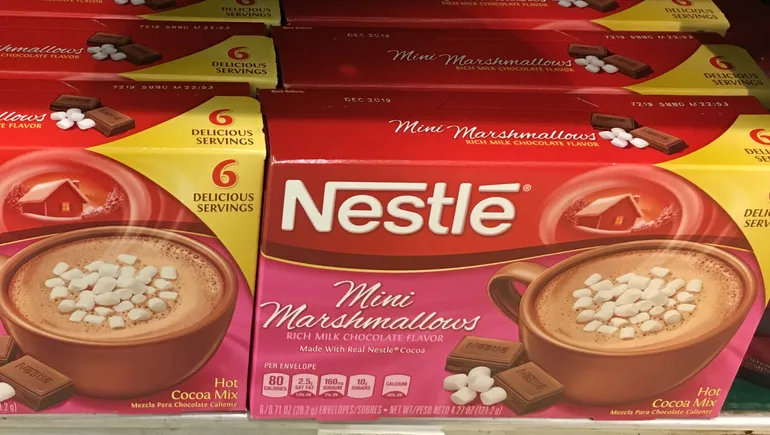Nestlé is largely “immune” from the impact of tariffs, the company’s chief executive said, with the world’s largest food producer benefiting from its more localized manufacturing footprint.
Laurent Freixe told reporters while the Lean Cuisine maker is closely watching global trade and tariffs, it benefits from the fact that most of the products sold are manufactured in their respective markets. In the U.S., for example, Nestlé produces about 90% of what it sells domestically.
“We are in a unique, privileged position, which is giving us resilience to significant movements,” Freixe, who took over as CEO last September, told reporters following the release of Nestlé’s fourth-quarter earnings.
Food and beverage makers are closely following the impact that tariffs from the Trump administration could have on their businesses. Coca-Cola CEO James Quincey said earlier this week the beverage maker could switch to more plastic bottles from aluminum cans if input costs for the commodity become too expensive.
For Nestlé, the Switzerland-based company has “lots of mechanics to mitigate any tariff that we do see come through, be it pricing, be it changing our sourcing,.” according to CFO Anna Manz.
She noted Nestlé’s guidance for 2025 does not factor in any impact from tariffs. While it’s hard to predict what is going to happen with trade policy, Manz warned any new duties could “charge the inflationary environment relatively quickly.”
Tariffs would raise costs at a time when CPG companies already feel pressure from a prolonged period of inflation. Businesses have raised prices to boost sales and offset higher expenses, but those moves have forced consumers to cut back on how much they buy or switch to private label or more innovative brands.
Nestlé has had trouble getting consumers to come back, particularly in frozen items such as pizza. The company recently lowered pricing and took steps to improve quality in the U.S. in an attempt to win back customers.
Nestlé said it is planning further price increases for cocoa and coffee, two commodities grappling with record-high prices. Manz told reporters how much Nestlé increases prices for products with coffee or cocoa will depend on how consumers respond, though she said they are “both very resilient categories.”
On Thursday, the company reported organic sales for 2024 rose 2.2%, a sharp drop from 7.2% in the prior year. Sales fell to $101 billion (91,354 billion Swiss francs) from $103 billion in 2023.
Nestlé said North America, which is responsible for more than a quarter of its sales, “was disappointing” during the year due to weakness in coffee creamers and frozen foods. Coffee creamers were impacted by supply constraints that should improve following the opening of a new plant recently in Arizona, the company said.
Nestlé forecast an “improvement in organic sales growth” across its overall business this year as recent initiatives put in place take hold. There are early signs the changes are gaining momentum, with sales growth strengthening in 2024 to 2.3% in the second half of the year from 2.1% in the first six months.
“We are starting [to invest] in our growth platform, in our innovation big bets, and the organization is aligned … and moving in the right direction,” Freixe said. “Although it takes time to move the needle, you will see Nestlé moving at pace in the right direction.”
Nestlé announced plans last November to cut at least $2.8 billion in costs by 2027, with the savings invested into other parts of its business. At the time, Nestlé said it would separate its waters and premium beverages unit into a standalone business, but Freixe said the company is no longer looking to sell the division.
The segment, which includes brands such as Perrier and Sanpellegrino, represents just under 4% of its global sales and has struggled recently. The company remains open to divesting part of the business or entering into a partnership, Freixe said.

